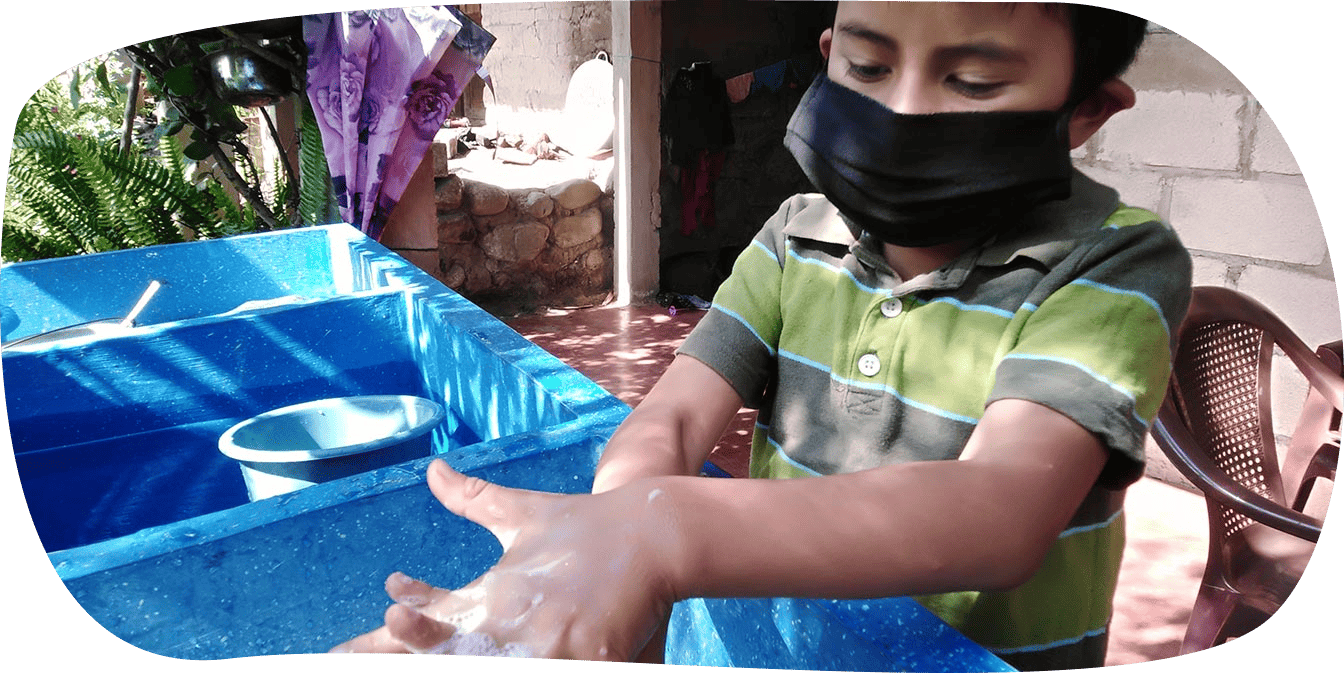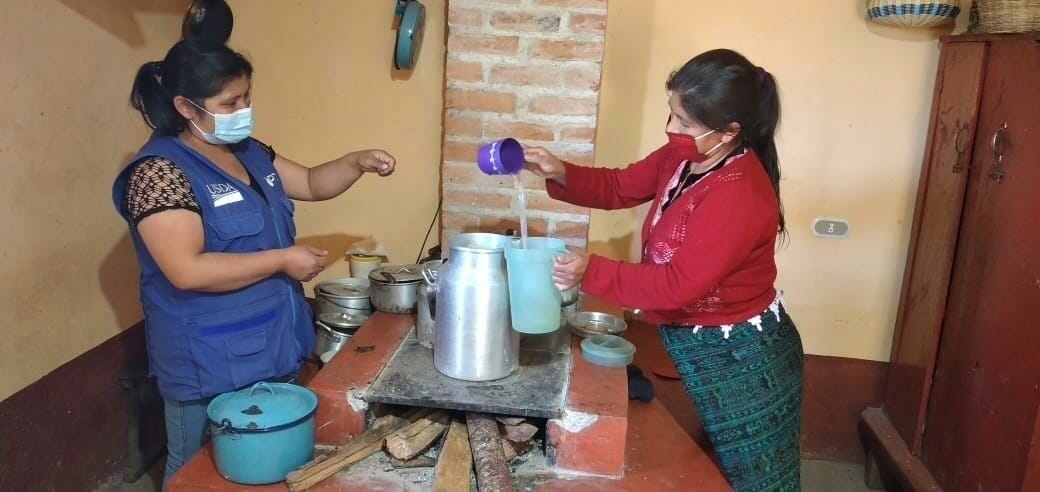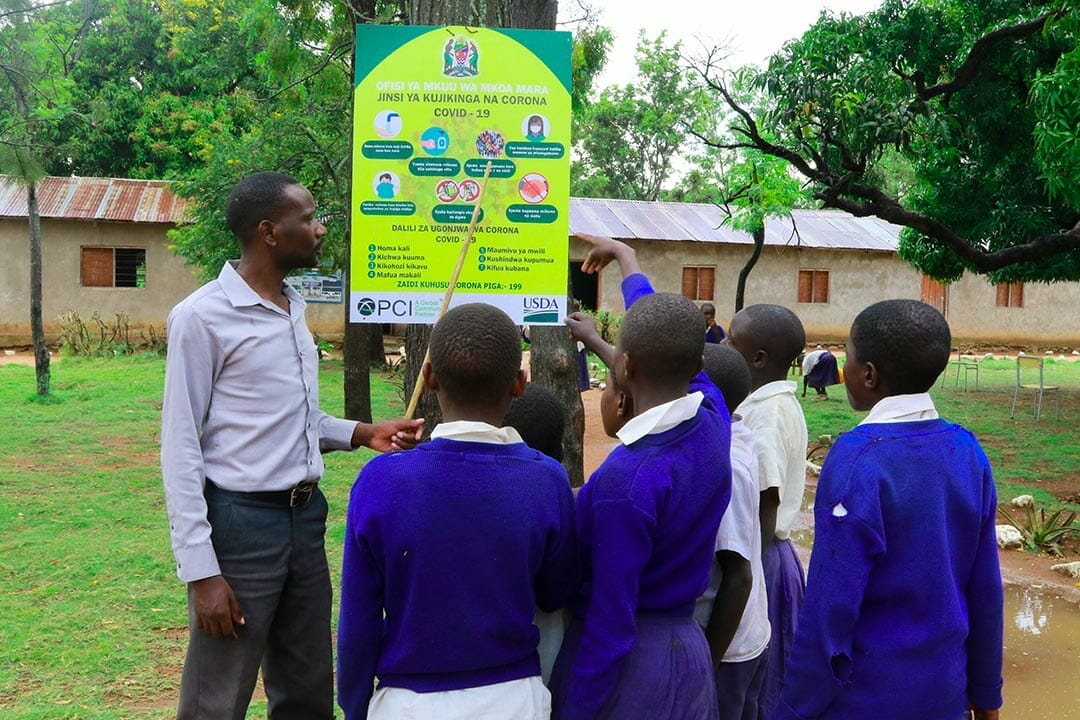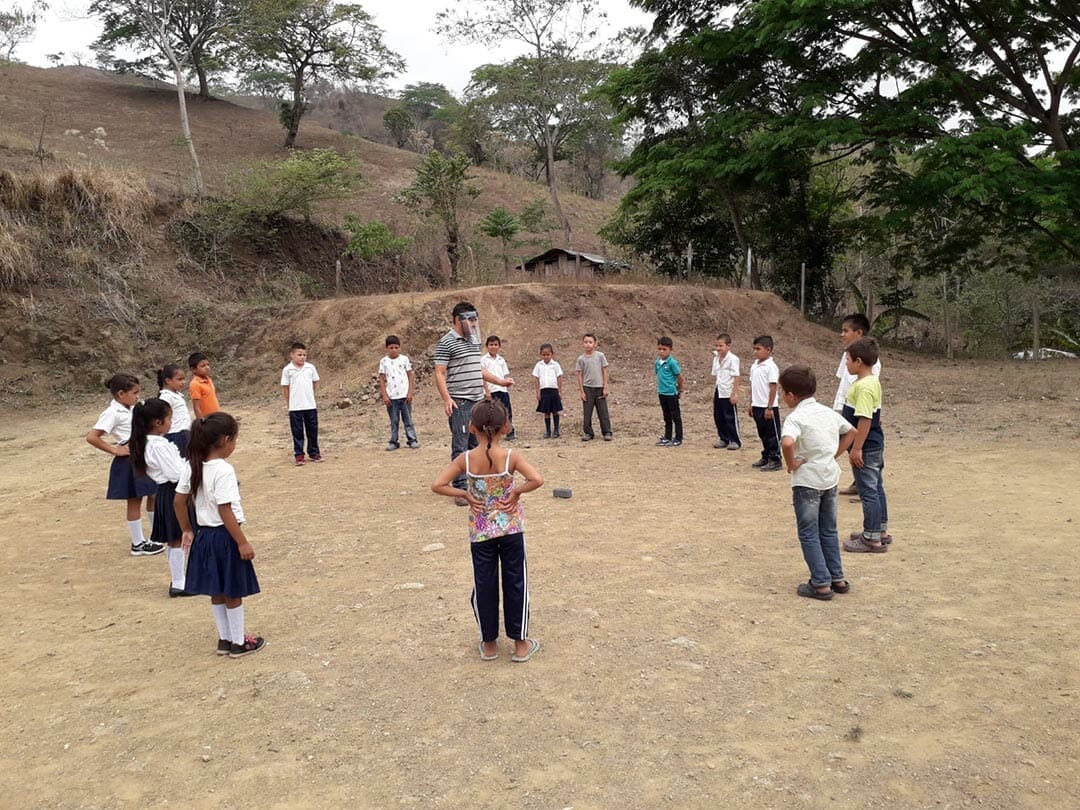HUNGER
Take-Home Rations, Tippy Taps and Technology: Helping Schools Navigate the Pandemic

At the height of the COVID-19 pandemic, at least 1.5 billion students were out of school - missing educational milestones, nutritious meals and safe spaces to learn, grow and connect. For many children and families across the world, school is more than just a place of learning; it's a safety net.
To mitigate the impact of the crisis in Guatemala, Tanzania and Nicaragua, PCI, a Global Communities Partner, worked with school staff, government officials, community leaders and parents to develop innovative COVID-19 responses unique to each country's situation. These collaborative efforts were part of PCI's ongoing work under the U.S. Department of Agriculture's (USDA) McGovern-Dole International Food for Education and Child Nutrition and Local and Regional Food Aid Procurement programs.
Guatemala
When the Government of Guatemala announced a "state of calamity" following the COVID-19 outbreak, PCI adapted its existing programming to help 346 preschool and primary schools safely respond to the crisis and still serve more than 44,500 students at home.
The schools reside in the departments of Huehuetenango, El Quiche and Totonicapan, where rural farming families struggle with chronic malnutrition and food insecurity due to severe droughts. Recognizing these challenges would only intensify under the pandemic, PCI/Guatemala distributed take-home rations to parents to ensure their children continued benefiting from daily nutritious meals while schools were closed.
"Under normal conditions, agricultural products are consumed only by students in schools. However, under these circumstances, the food will sustain the entire family," said Wilman Escobedo, a project coordinator with PCI/Guatemala.
Commodities included USDA-donated rice, beans and cooking oil as well as fruit, vegetables and eggs procured locally with USDA funds. In doing so, the take-home rations did not just benefit the students and their families but supported 84 local farmers as well.
"I am happy and joyful to receive these bags of vegetables. I was keeping an eye out to make sure the products received were of good quality," said Maria Gaspar, a Parent-Teacher Association leader and mother who volunteers at her child's school. "Even though the school is closed, children will be able to eat. This will help [with their] education."
To try to sustain learning amid the pandemic, PCI encouraged use of the free phone application Bloom Reader, which contains stories in Spanish, Mam and Q'anjob'al languages. PCI staff helped parents and other community members install the app on their phones and learn how to use it with their children at home.
Other literacy initiatives included distributing 60,000 printed books to parents and training 1,540 teachers on how to use educational resources such as Bloom Reader to develop students' reading and writing skills. By organizing 304 virtual communication networks, PCI connected nearly 2,000 parents with teachers via WhatsApp, where they shared digital books as well as COVID-19 prevention messages.
0
students were provided nutritious meals at home while schools were closed due to the pandemic.
In all, PCI trained 6,203 parents, students and teachers in COVID-19 prevention measures using audiovisual materials and key messages about hand-washing, mask-wearing and social distancing via telephone and WhatsApp.

Photo by PCI/Guatemala Staff
Tanzania
In Tanzania, schools reopened in July after a three-month closure due to the coronavirus. PCI provided technical assistance to ensure school administrations followed national guidelines so students and teachers could safely return to the classroom. This included confirming that hand-washing facilities were available in all 247 schools where PCI program activities take place. PCI/Tanzania also supported Women Empowered groups in producing local hand sanitizers for 123 primary schools.
In close collaboration with the Mara regional government, PCI/Tanzania conducted outdoor awareness campaigns and distributed Information, Education and Communication (IEC) materials on COVID-19-related messages and precautions. A total of 247 posters with key prevention measures were displayed at each school, and 49 billboards were placed in high-traffic locations.
By banking on the technical support from the PCI team, who are community-centered, we will save lives.
Dr. Florian Tinuga
Mara Regional Medical Officer

Photo by PCI/Tanzania Staff
"In Bukuru village, we have been doing lots of door-to-door sensitization campaigns around the COVID-19 pandemic," said Ondieki Salu, village chairman in the Rorya district of Mara Region. "The team has been capitalizing on hand-washing and wearing masks. With this coordinated support from the region authority and other stakeholders, I believe we managed to control the spread across our village."
To ensure as many eyes and ears as possible were attuned to how to keep their families and communities safe from COVID-19, PCI/Tanzania also aired 420 radio spots, three TV episodes and multiple public service announcements.
"In the absence of ample clinical resources, we must focus on preventive measures, and it is always a challenge in any disease outbreak to get communities to change their behavior," said Dr. Florian Tinuga, a Mara Regional Medical Officer. "… By banking on the technical support from the PCI team, who are community-centered, we will save lives."
0
primary schools in Tanzania were provided with locally-produced hand sanitizer by Women Empowered groups.
Nicaragua
In Nicaragua, where schools have remained open during the pandemic, PCI has played a critical role in supporting the well-being of students and their families. With support from USDA, PCI continues to reach more than 77,500 children in 1,115 schools with a nutritious daily meal and COVID-19 prevention information. The schools are located in some of the most underserved communities in Jinotega and the South Caribbean Coast of Nicaragua.
In March 2020, at the onset of the pandemic, student attendance dropped to approximately 40% because of fears about the coronavirus. To ensure continued access to healthy food for children who were absent, PCI/Nicaragua distributed take-home rations to 10,000 students in 60 communities. Staff also leveraged this time to talk to families about COVID-19 prevention measures such as washing their hands with soap and water, wearing masks and practicing social distancing.

Photo by PCI/Nicaragua Staff
"At the beginning, there was a lot of uncertainty among [parents]. Although they understood that there is a pandemic affecting the world right now, all the information that came to them was accompanied by huge myths and misinformation," said Salvador Vindel, a PCI/Nicaragua staff member working in the municipality of Pantasma.
To counter these myths, PCI/Nicaragua trained 5,248 parents and teachers from 638 schools on key health and hygiene practices. Participants then circulated COVID-19 prevention messages among their communities and supported the installation of 2,174 low-cost hand-washing stations, or "Tippy Taps," in local homes and schools.
In addition to providing ongoing technical support to schools on COVID-19, PCI/Nicaragua also conducted an online training for 150 teachers on literacy teaching methodologies and how to involve parents in their children's reading practice at home.
"PCI contributed by reaching communities that the Ministry of Education staff were not able to reach, addressing COVID prevention using our common approaches and purposes," said Rolando Guevara, Pedagogical Advisor of the Ministry of Education.
According to Maryuri Rodríguez, a school parent who participated in one of PCI/Nicaragua's workshops in El Dorado, Jinotega, families are feeling more confident about keeping their children safe where they live, learn and play: "Previously, we ignored a lot of things about COVID-19. Now we know its weaknesses and how to prevent it, so that we can preserve our children's lives at home, the school and the community."
0
children were reached with a nutritious daily meal and COVID-19 prevention information.
Story by Maureen Simpson

